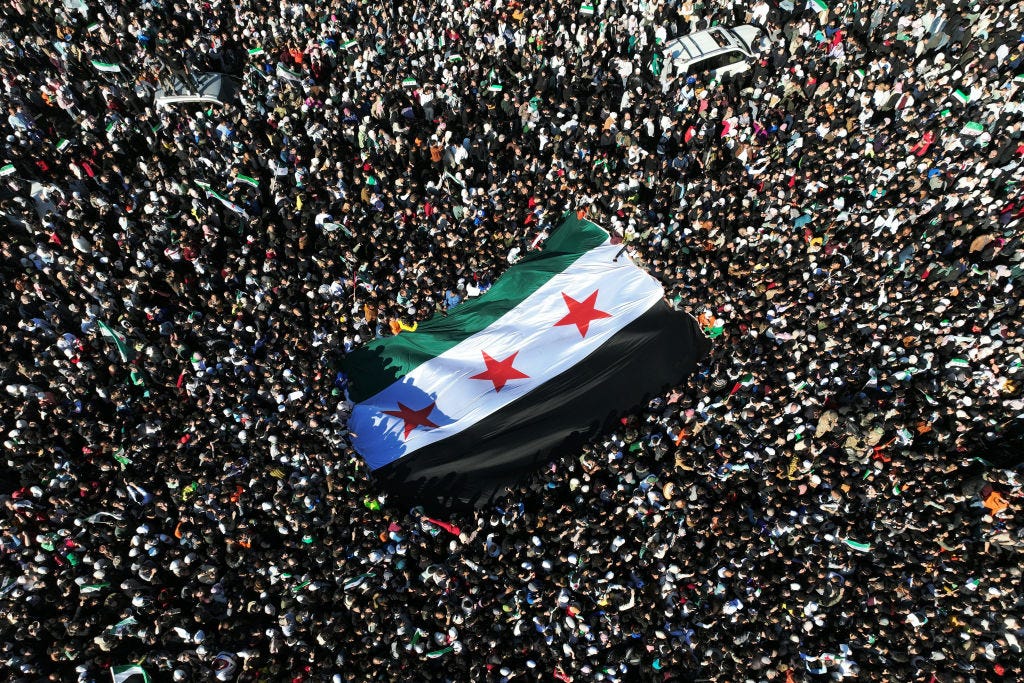Free Syria
Photojournalist, activist, and writer Loubna Mrie on the fall of Bashar al-Assad and what Syrians need to do to ensure a democratic future
When Damascus fell to rebel troops on December 7 and Bashar al-Assad fled for Moscow the following day, it marked the end of a half-century of dictatorial rule by the Assad family. It also brought to a close the Syrian civil war, sparked by the Arab Spring in March of 2011, which killed or disappeared more than 600,000 people and destabilized not just S…




